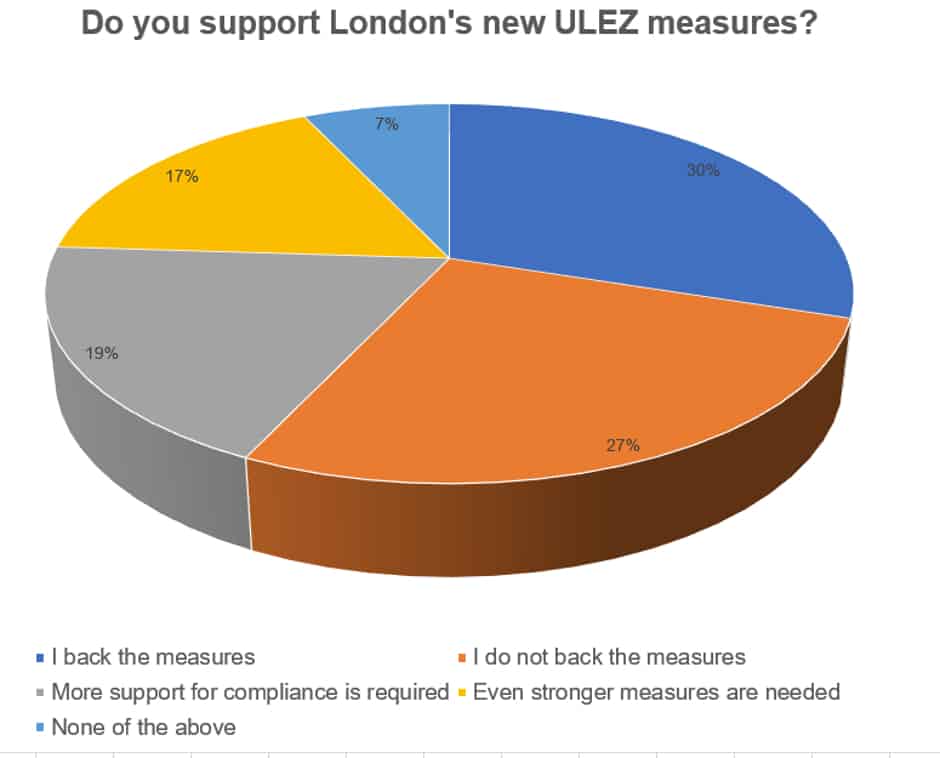
Here in the capital we’re a week into the implementation of an Ultra-Low Emissions Zone (ULEZ), which has been rolled out in central London and will gradually expand across the whole of inner London between the north and south circular roads in 2021.
London mayor Sadiq Khan makes no apologies for the ambition of ULEZ, determined as he is to eradicate poor health associated with air pollution. Some see ULEZ as a ‘war on cars’ but the fact remains that petrol and diesel vehicles will have to comply with emissions limits, and this includes Transport for London’s bus fleet which is expected to meet or exceed ULEZ standards by October 2020.
By way of a recap, petrol vehicles that do not meet Euro 4 standards and diesel vehicles that do not meet Euro 6 will have to pay a daily charge. There will be two ULEZ charge levels: £12.50 a day for cars, vans and motorbikes and £100 a day for lorries, buses and coaches.
But how many of the 540 respondents to last week’s poll support the new ULEZ measures? A total of 30 per cent back the measures, followed closely by 27 per cent who do not. Just under a fifth (19 per cent) believe more support for compliance is required, and 17 per cent who believe that stronger measures are needed. The remaining seven per cent chose ‘none of the above’.
In the debate that followed, several readers pointed out that exhaust pipes aren’t the only source of pollution, including Chris Oates-Miller, who said: “So the poor motorist is hit again, yet they (those driving older vehicles) are possibly not the main contributor to the air pollution of London. Aircraft coming in and out of the airports, trains (they aren’t all electric) and the boats on the river all contribute, but because they don’t cause congestion they can pollute as much as they like. Also, as pointed out many times not all the pollutants come from the exhaust … brake dust, tyre rubber and road particles. So, does charging work? Simple answer: no. It just brings in revenue, the roads remain congested and I dare say the air is just as bad.”
“Considering the weight of evidence from multiple countries it would be wilfully ignorant to not urgently tackle NOx & particulate pollution,” said J Eyre. “As to just how effective the solution will be? That’s harder to pin down. You can’t blame government for choosing to charge motorists. Simply banning the worst cars would have constituents gathering pitchforks & torches.”
John Bibby looked to the west of the city and added: “The greatest polluter of London’s air space is Heathrow, and they are expanding that.”
What do you think? Keep the debate alive in Comments below. Before making a comment, take a moment to familiarise yourself with our code of conduct.





Nanogenerator consumes CO2 to generate electricity
Nice to see my my views being backed up by no less a figure than Sabine Hossenfelder https://youtu.be/QoJzs4fA4fo